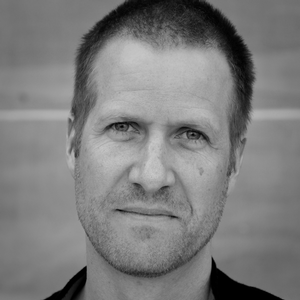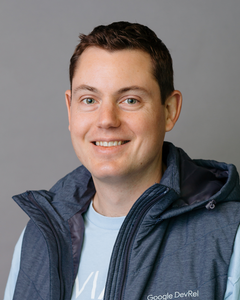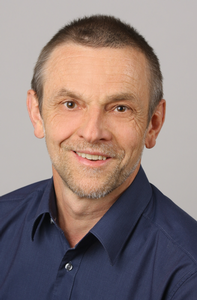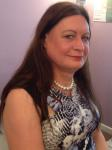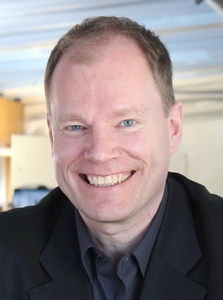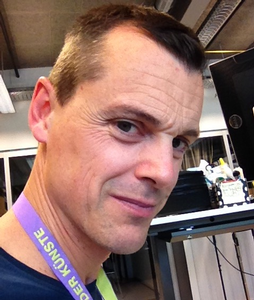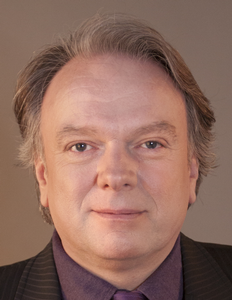AES Milan 2018
Product Development Track Event Details
Wednesday, May 23, 09:15 — 10:15 (Scala 3)
Workshop: W01 - Designing for High Speech Intelligibility
Chair:Dirk Noy, WSDG - Basel, Switzerland
Obtaining a high speech intelligibility in large, voluminous spaces such as stadia or airports can be challenging; however, due to the requirements for audience information and entertainment as well as the criteria for emergency announcements the audio systems play a relevant role in safely operating any large public gathering place. This presentation outlines concepts of designing audio systems for high speech intelligibility. Further topics include the challenges introduced by non-optimal, reverberant room acoustics and their possibly detrimental effects towards Speech Intelligibility. A range of solution strategies will be presented based both on room acoustical and electro acoustical approaches. The presentation will conclude with a number of case studies, including Zurich Airport Checkin 2 Remodeling and KKL Lucerne Concert Hall Electroacoustics Refurbishment.
Wednesday, May 23, 11:15 — 12:45 (Scala 3)
Workshop: W03 - Audio Repurposing Using Source Separation
Chair:Philip Coleman, University of Surrey - Guildford, Surrey, UK
Panelists:
Estefanía Cano Cerón, Fraunhofer Institute for Digital Media Technology (IDMT) - Ilmenau, Germany
Chungeun Kim, University of Surrey - Guildford, Surrey, UK
Jon Francombe, BBC Research and Development - Salford, UK
Jouni Paulus, Fraunhofer IIS - Erlangen, Germany; International Audio Laboratories Erlangen - Erlangen, Germany
Source separation tries to extract sound objects from an existing mixture. In reality, perfect separation is not achievable; the sound quality of single extracted sources is often heavily degraded. Fortunately, if the separated sources are recombined with small alterations in level or position, the degradations are often masked. This workshop discusses using source separation to enable repurposing the original audio content: speech intelligibility can be improved for broadcast listeners or cochlear implant users; sound objects can be extracted from a recording to enable object-based transmission and rendering. It is important to be able to assess the sound quality of the remix and the extent to which audio remixing is possible. We will highlight possible evaluation methods involving listeners and state-of-the-art algorithms.
 | This session is presented in association with the AES Technical Committee on Semantic Audio Analysis |
Wednesday, May 23, 11:15 — 12:15 (Scala 1)
Tutorial: T04 - Build a Synth for Android
Presenter:Don Turner, Developer Advocate, Android Audio Framework - UK
With 2 billion users Android is the world's most popular operating system, and it can be a great platform for musical creativity. In this session Don Turner (Developer Advocate for the Android Audio Framework) will build a synthesizer app from scratch* on Android. He'll demonstrate methods for obtaining the best performance from the widest range of devices, and how to take advantage of the new breed of low latency Android "pro audio" devices. The app will be written in C and C++ using the Android NDK APIs.
*Some DSP code may be copy/pasted
 | This session is presented in association with the AES Technical Committee on Audio for Games |
Wednesday, May 23, 11:45 — 12:45 (Lobby)
Workshop: W05 - Assessment of Spatial Audio Contents Using the MS-IPM Methodology
Co-chairs:Matthieu Parmentier, francetélévisions - Paris, France
Chris Pike, BBC R&D - Salford, UK; University of York - York, UK
Nick Zacharov, Force Technology, SenseLab - Hørsholm, Denmark
Panelists:
Catherine Colomès, b<>com
Michael Weitnauer, IRT - Munich, Germany
This workshop will explain the MS-IPM methodology that allows the evaluation of several perceptive attributes without anchor, a suitable method to assess spatial audio contents. The discussion will highlight a concrete use-case of this methodology for the assessment of object-based audio contents processed by different production renderers.
Wednesday, May 23, 16:30 — 18:00 (Scala 1)
Tutorial: T07 - Benefiting from New Loudspeaker Standards
Presenter:Wolfgang Klippel, Klippel GmbH - Dresden, Germany
This tutorial focuses on the development of new IEC standards, addressing conventional and modern measurement techniques applicable to all kinds of transducers, active and passive loudspeakers and other sound reproduction systems. The first proposed standard (IEC 60268-21) describes important acoustical measurements for evaluating the generated sound field and signal distortion. The second standard (IEC 60268-22) is dedicated to the measurement of electrical and mechanical state variables (e.g. displacement), the identification of lumped and distributed parameters (e.g. T/S) and long-term testing to assess power handling, thermal capabilities, product reliability and climate impact. The third standard(IEC 63034) addresses the particularities of micro-speakers used in mobile and other personal audio devices. The tutorial gives a deeper insight into the background, theory and practical know-how behind those standards.
 | This session is presented in association with the AES Technical Committee on Loudspeakers and Headphones |
Wednesday, May 23, 16:30 — 18:00 (Scala 3)
Tutorial: T08 - Modern Sampling: It’s Not About the Sampling; It’s About the Reconstruction!
Presenter:Jamie Angus, University of Salford - Salford, Greater Manchester, UK; JASA Consultancy - York, UK
Sampling, and sample rate conversion, are critical processes in digital audio. The analogue signal must be sampled, so that it can be quantized into a digital word. If these processes go wrong, the original signal will be irretrievably damaged!
1. Does sampling affect the audio?
2. Can we reconstruct audio after sampling?
3. Does sampling affect the timing, or distort the music?
4. Can modern sampling techniques improve things?
This tutorial will look at the modern theories of sampling, and explain, in a non-mathematical way, how these modern techniques can improve the sampling and reconstruction of audio.
Using audio examples, it will show that sampled audio, when properly reconstructed, preserves all of the original signal. Because it’s not the sampling but the reconstruction that matters!
 | This session is presented in association with the AES Technical Committee on High Resolution Audio |
Thursday, May 24, 09:00 — 10:30 (Scala 3)
Workshop: W09 - The State of the Art in Sound Synthesis and Procedural Audio
Chair:Joshua D. Reiss, Queen Mary University of London - London, UK
Panelists:
Stefan Bilbao, University of Edinburgh - Edinburgh, UK
Davide Rocchesso, University of Palermo - Palermo, Italy
Stefania Serafin, Aalborg University - Copenhagen, Denmark
Vesa Välimäki, Aalto University - Espoo, Finland
Sound synthesis covers not just analog and MIDI synthesizers but the full range of algorithmic approaches to sound generation. Similarly, procedural audio is characterized by the philosophy of "sound as process, not samples," Procedural audio has been enthusiastically embraced by the games industry, and sound synthesis in all its forms may revolutionize sound design for animation, games, VR, augmented reality, and across the creative industries. This Workshop gives an overview of recent developments in the field. It brings together leading researchers to explain the key concepts and discuss new approaches and technologies. It will be relevant to practitioners, enthusiasts, and researchers wishing to gain a deeper understanding of this rapidly changing field.
 | This session is presented in association with the AES Technical Committee on Audio for Games and AES Technical Committee on Audio for Cinema |
Thursday, May 24, 10:45 — 12:15 (Scala 3)
Tutorial: T13 - Perceptual and Physical Evaluation of Guitar Loudspeakers
Presenter:Wolfgang Klippel, Klippel GmbH - Dresden, Germany
Loudspeaker and headphones generate distortion in the reproduced sound that can be assessed by objective measurements based on a physical or perceptual model or just by a subjective evaluation performed in systematic listening tests. This tutorial gives an overview on the various techniques and discusses the way how measurement and listening can be combined by auralization techniques to give a more reliable and comprehensive picture on the quality of the sound reproduction. The separation of signal distortion in speech signals allows to assess signal distortion which are for most stimuli below the audibility threshold. Further analysis of the separated distortion signals gives clues to identify the physical root cause of loudspeaker defects which is very crucial for fixing design problems.
Thursday, May 24, 12:15 — 13:45 (Scala 3)
Workshop: W11 - Deep Learning for Audio Applications
Chair:Konstantinos Drossos, Tampere University of Technology - Tampere, Finland
Panelists:
Qiuqiang Kong, University of Surrey - Guildford, Surrey, UK
Stylianos Ioannis Mimilakis, Fraunhofer Institute for Digital Media Technology (IDMT) - Ilmenau, Germany
Christian Uhle, Fraunhofer Institute for Integrated Circuits IIS - Erlangen, Germany; International Audio Laboratories Erlangen - Erlangen, Germany
Deep learning is currently the most active research field. It has led to impressive improvements over former state-of-the-art methods in, for example, image classification, speech recognition, and text translation.
This workshop introduces the concepts of deep learning and shows how it is applied to various problems of the audio engineering community, e.g., acoustic event detection, signal enhancement, source separation, and classification.
 | This session is presented in association with the AES Technical Committee on Semantic Audio Analysis |
Thursday, May 24, 13:30 — 15:30 (Arena 2)
Student / Career: SC04 - Saul Walker Student Design Competition
All accepted entries to the AES Student Design Competition are given the opportunity to show off their designs at this poster/tabletop exhibition. The session is free and open to all convention attendees and is an opportunity for aspiring student hardware and software engineers to have their projects seen by the AES design community. It is an invaluable career-building event and a great place for companies to identify their next employees. Students from both audio and non-audio backgrounds are encouraged to participate. Few restrictions are placed on the nature of the projects, which may include loudspeaker designs, DSP plug-ins, analog hardware, signal analysis tools, mobile applications, and sound synthesis devices. Attendees will observe new, original ideas implemented in working-model prototypes.
Thursday, May 24, 14:00 — 15:30 (Scala 3)
Tutorial: T15 - Listening Tests - Understanding the Basic Concepts
Presenter:Jan Berg, Luleå University of Technology - Piteå, Sweden
Listening tests are important tools for audio professionals as they assist our understanding of audio quality. There are numerous examples of tests, either formally recommended and widely used or specially devised for a single occasion. In order to understand listening tests and related methods, and also to potentially design and fully benefit from their results, some basic knowledge is required. This tutorial aims to address audio professionals without prior knowledge of listening test design and evaluation. The fundamentals of what to ask for, how to do it, whom to engage as listeners, what sort of results that may be expected, and similar issues will be covered.
 | This session is presented in association with the AES Technical Committee on Perception and Subjective Evaluation of Audio Signals |
Thursday, May 24, 15:30 — 17:00 (Scala 3)
Workshop: W18 - Recruiting and Training Participants for Listening Tests
Chair:Jon Francombe, BBC Research and Development - Salford, UK
Panelists:
Jan Berg, Luleå University of Technology - Piteå, Sweden
Tore Stegenborg-Andersen, DELTA SenseLab - Hørsholm, Denmark
Todd Welti, Harman International Inc. - Northridge, CA, USA
Listening tests can produce accurate and reliable results when conducted and analyzed correctly. The participants in such tests are an important contributing factor to the quality of results that are obtained. However, recruiting, training, and maintaining a committed panel of expert listeners is challenging, and reporting in scientific publications often lacks detail.
In this workshop, industrial and academic experts will share best practices from their extensive experience of convening listener panels. How can listeners be recruited, assessed, and trained? How should details of the listeners be presented when reporting results? How can diversity in panel membership be ensured? What about ethical issues and data security?
The workshop will feature a number of short presentations and plenty of time for questions and suggestions from the audience.
Thursday, May 24, 16:15 — 17:45 (Arena 3 & 4)
Workshop: W19 - Microphones—Can You Hear the Specs? A Master Class
Chair:Helmut Wittek, SCHOEPS GmbH - Karlsruhe, Germany
Panelists:
Eddy B. Brixen, EBB-consult - Smørum, Denmark; DPA Microphones
Kelly Kay, Josephson Engineering - Santa Cruz, CA, USA
Hans Riekehof, SCHOEPS Mikrofone GmbH - Karlsruhe, Germany
Martin Schneider, Georg Neumann GmbH - Berlin, Germany
There are numerous microphones available to the audio engineer. It's not easy to compare them on a reliable basis, often the choice of the model is made on the basis of experience or perhaps just habits—or just because it looks nice. Nevertheless, there is valuable information in the microphone specifications. This master class held by well-known microphone experts of leading microphone manufacturers demystifies the most important microphone specs and provides the attendees with up-to-date information on how these specs are obtained and can be interpreted. Furthermore, many practical audio demonstrations are given in order to help everyone to understood how the numbers relate to the perceived sound.
Thursday, May 24, 17:00 — 18:00 (Scala 3)
Tutorial: T17 - Use of Delay-Free IIR Filters in Musical Sound Synthesis and Audio Effects Processing
Presenter:Federico Fontana, University of Udine - Udine, Italy
The delay-free loop problem appears when an audio electronic system, typically an analog processor, is transformed in the digital domain by means of a filter network preserving the structural connections among nonlinear components. If such connections include delay-free loopbacks then there is no explicit procedure allowing for the computation of the corresponding digital filter output.
The tutorial will show how a delay-free IIR filter network is designed, realized, and finally computed; and why they have led to successful real-time digital versions of the Dolby B, the Moog and EMS VCS3 voltage-controlled filter, as well as nonlinear oscillators and RLC networks, magnitude-complementary parametric equalizers, and finite-difference time-domain scheme-based models of membranes characterized by low wave dispersion.
 | This session is presented in association with the AES Technical Committee on Signal Processing |
Friday, May 25, 12:00 — 13:30 (Scala 3)
Workshop: W25 - The Challenge of Loudspeaker Integration in Automotive Audio Applications
Presenter:Alfred Svobodnik, MVOID Group - Karlsruhe, Germany; Wien, Austria
The integration of loudspeakers into a vehicle, both in terms of acoustical and mechanical aspects, is a highly challenging topic. Parasitic vibrations of panels excited by the loudspeaker can lead to significant deterioration of the sound quality. Acoustical short-circuits and Helmholtz resonances are another potential source for performance degradation. This workshop aims to discuss the major challenges of automotive loudspeaker packaging and possible solutions to improve the acoustical quality.
 | This session is presented in association with the AES Technical Committee on Automotive Audio |
Friday, May 25, 14:30 — 16:00 (Scala 3)
Tutorial: T23 - Optimizing Transducer Design for Systems with Adaptive Nonlinear Control
Presenters:Gregor Höhne, Klippel GmbH - Dresden, Germany
Marco Raimondi, STMicroelectronics SRL - Cornaredo (MI), Italy
Modern loudspeakers increasingly incorporate digital signal processing, amplification and the transducer itself in one unit. The utilized algorithms not only comprise linear filters but adaptively control the system, deploying measured states and complex models. Systems with adaptive nonlinear control can be used to equalize, stabilize, linearize, and actively protect the transducer. Thus, more and more demands can be taken care of by digital signal processing than by pure transducer design, opening new degrees of freedom for the latter. The tutorial focuses on how this freedom can be utilized to design smaller and more efficient loudspeaker systems. Examples are given for how existing transducer designs can be altered to increase their efficiency and which new challenges arise when driving speaker design to its limits.
Friday, May 25, 15:00 — 16:30 (Arena 3 & 4)
Workshop: W27 - Artificial Intelligence in Your Audio
Chair:Jonathan Wyner, M Works Studios/iZotope/Berklee College of Music - Boston, MA, USA; M Works Mastering
Panelists:
Jonathan Bailey, iZotope
Joshua D. Reiss, Queen Mary University of London - London, UK
AI has been part of the listener's experience for many years . . . . now it is influencing the development of tools made for music production and music creation. We will look at how it is being used, the promise it holds in developing new tools and the challenges it presents for music engineers and producers.
 | This session is presented in association with the AES Technical Committee on Recording Technology and Practices |
Friday, May 25, 16:30 — 18:00 (Arena 3 & 4)
Special Event: SE05 - Audio Aesthetics—Designed for the Future
Presenters:Jacob Mathew, Echelon Audio - Portland, OR, USA
Andrea Pivetta, Andrea Pivetta - Cogollo del Cengio, Vicenza, Italy
With Milan as the home for the Audio Engineering Society's 144th Convention, this special event is dedicated to the aesthetics of audio design and in particular the innovative world of loudspeaker design aesthetics. Focusing on the work of a selection of inspirational audio designers, the session will introduce a brief history of audio design; design principles; design processes; technologies; and the materials that are being used to develop these icons of audio.
Saturday, May 26, 09:00 — 10:30 (Arena 3 & 4)
Student / Career: SC11 - Creating Audio Plugins with MATLAB
Presenter:Gabriele Bunkheila, MathWorks - Cambridge, UK
The first AES MATLAB Plugin Student Competition is now open for submissions – The entry deadline is August 15, 2018, with showcase and awards scheduled for the upcoming 145th Convention of the AES in New York City.
This optional tutorial covers the technical foundations needed to enter the competition. After attending, you will be able to build a simple VST plugin using MATLAB. You will learn about structuring code for real-time efficiency, defining clear interfaces to tune parameters via interactive controls, testing generated plugins against original designs, and much more.
The session will make use of practical coding examples – prior programming experience will be beneficial but is not required. A video recording will be available online after the Convention.
For more information about the competition, please visit "http://www.aes.org/students/awards/mpsc/">competition link
Saturday, May 26, 09:00 — 10:30 (Scala 1)
Tutorial: T26 - Cancelled

